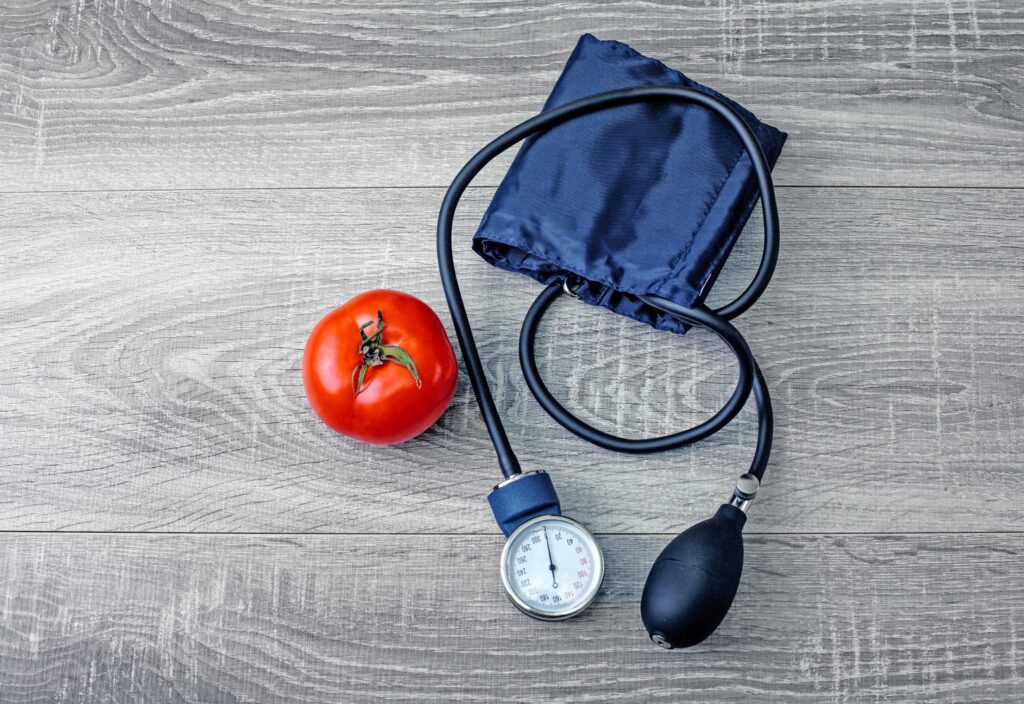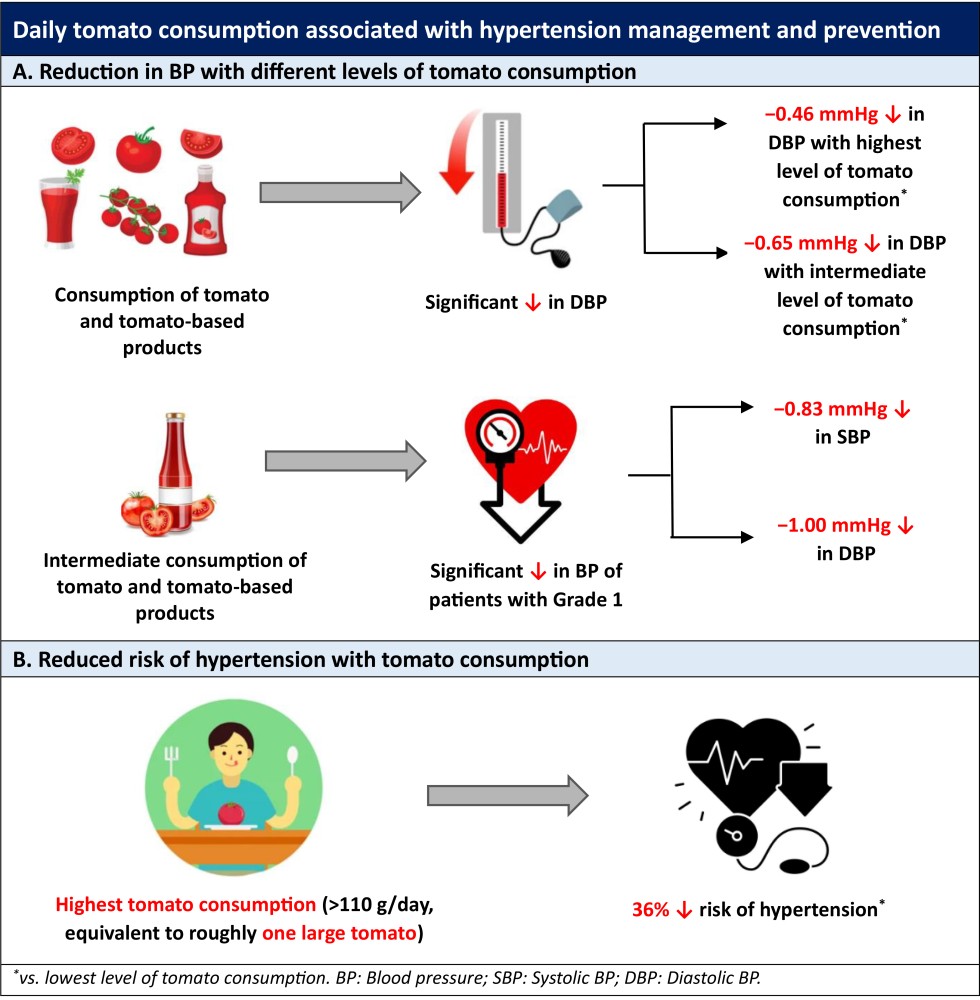
Tomatoes, one of the commonly consumed and easily available vegetables, contain large amount of lycopene. Lycopene lowers the blood pressure (BP) by blocking angiotensin converting enzyme and its gene expression, thereby blocking angiotensin II synthesis (a vasoconstrictor that increases BP). It also indirectly increases nitric oxide generation in the endothelium. The clinical evidence on impact of tomato consumption on BP is conflicting, and data from epidemiologic studies is limited.
A new study by Murcia-Lesmes D et al., recently published in the “European Journal of Preventive Cardiology”, reported the beneficial effects of consuming tomatoes and tomato-based products in preventing and managing hypertension. The risk of hypertension was lowered by 36% with higher tomato consumption (>110 g/day), while BP was lowered by moderate tomato consumption, particularly in those with Grade 1 hypertension.
This was a 3-year prospective, observational, longitudinal study including 7,056 older adult patients (55–80 years; 82.5% hypertensive) with high cardiovascular risk. The study investigated the link of tomato consumption with systolic BP (SBP) and diastolic BP (DBP) and the risk of hypertension. The patients completed questionnaires about their diet and physical activity. Daily tomato consumption was evaluated from items in the food questionnaire (raw tomato, tomato sauce, Gazpacho [a cold Spanish tomato soup blended with extra-virgin olive oil, garlic, and other vegetables]). Tomato consumption was categorized into 4 groups based on serving size: Lowest (<44 g), intermediate (44–82 g), upper-intermediate (82–110 g), and highest (>110 g). Hypertension grades were classified as: Grade 1 hypertension (SBP: 140–159 mmHg and/or DBP: 90–99 mmHg), Grade 2 hypertension (SBP: 160–179 mmHg and/or DBP: 100–109 mmHg), and Grade 3 hypertension (SBP: ≥180 mmHg and/or DBP: ≥110 mmHg). The primary outcome was SBP and DBP measurements, while secondary outcome was a new diagnosis of arterial hypertension. Blood pressure and food consumption were measured at baseline, 1 year, and 3 years of follow-up.
The key study results are summarized below:
- The DBP decreased significantly in patients with both highest (−0.46 mmHg; p = 0.004) and intermediate (−0.65 mmHg; p = 0.003) levels of tomato consumption compared to those with lowest levels of consumption (Graphic A).
- In patients with Grade 1 hypertension, both SBP (−0.83 mmHg; p = 0.025) and DBP (−1.00 mmHg; p = 0.00) were significantly reduced with intermediate level of tomato consumption compared to patients with lowest level of consumption (Graphic A).
- In individuals without hypertension, a 36% reduced risk of hypertension (hazard ratio: 0.64; 95% confidence interval: 0.51–0.89) was noted with the highest tomato consumption (>110 g/day, equivalent to roughly one large tomato) compared to lowest tomato consumption (Graphic B).

Clinical implications
- This was the first largest longitudinal study to report the link between tomato consumption and BP and new-onset hypertension in elderly patients at high risk to develop cardiovascular disease.
- A BP-lowering effect (both SBP and DBP) in individuals with Grade 1 hypertension and a 36% reduced risk of new-onset hypertension in those without hypertension were noted with long-term tomato consumption.
- Dietary modification is the primary initial management strategy before drug therapy in uncomplicated Grade 1 hypertension; therefore, tomatoes can be a key component of daily meals, promoting healthy eating.
(Source: Murcia-Lesmes D, Domínguez-López I, Laveriano-Santos EP, Tresserra-Rimbau A, Castro-Barquero S, Estruch R, Vazquez-Ruiz Z, Ruiz-Canela M, Razquin C, Corella D, Sorli JV, Salas-Salvadó J, Pérez-Vega KA, Gómez-Gracia E, Lapetra J, Arós F, Fiol M, Serra-Majem L, Pinto X, Ros E, Lamuela-Raventós RM. Association between tomato consumption and blood pressure in an older population at high cardiovascular risk: Observational analysis of PREDIMED trial. Eur J Prev Cardiol. 2023 Nov 24:zwad363. Doi: 10.1093/eurjpc/zwad363)
